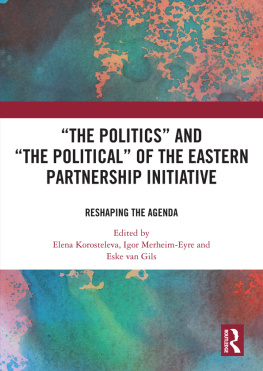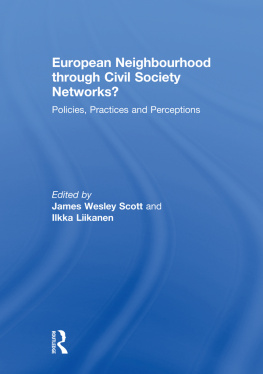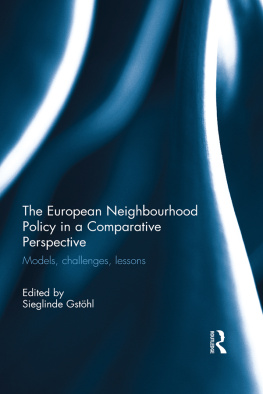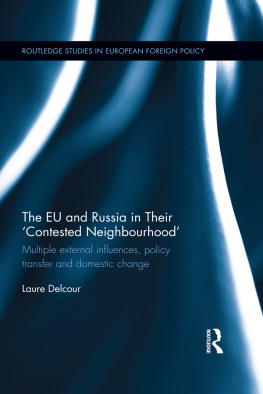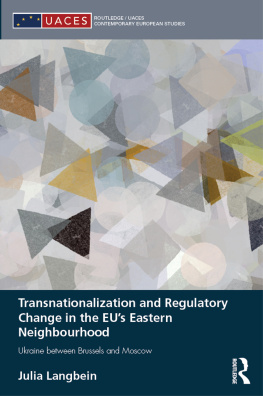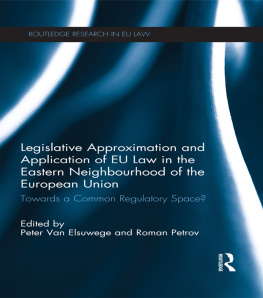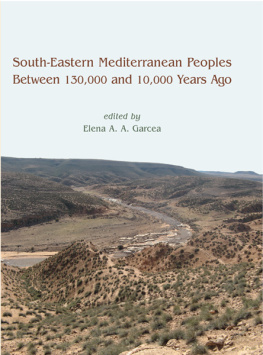EU Policies in the Eastern Neighbourhood
The EU continuously searches for a more effective policy towards its eastern neigh-bourhood, which is reflected in the on-going adaptation of its existing approaches, discourses and policy strategies to the new challenges of its external environment. In order to understand the complexity and limitations of the EU framework under the European Neighbourhood Policy (ENP) and the Eastern Partnership Initiative (EaP) that is, to consider the interface between policy instruments, institutional structures, and multiple agents one needs to adopt an original analytical perspective of practices to comprehensively assess the policies outcomes.
This volume therefore offers an examination of social practices as implemented through the use of policy instruments and subsequently embedded into the existing/emergent social structures which shape and determine the EU-neighbours relations. To gauge success of the ENP in the eastern region, the book pulls together a rich collection of geographical and thematic case-studies, joined by the overarching conceptual framework of practices. This studys principal aims are to discern patterns of social practices which guide agents interactions in different policy areas; to explore the origin and effect of these practices (the role of dominant discourses, logistical imbalances, deliberate strategies, etc.); and to explicate the nature of the emerging social structures being established in the eastern region. This approach is distinctive from other constructivist undertakings as it allows to synergise the meanings of social actions (through the focus on agents and instruments), and their structural extensions (through the focus on emergent structures) across geo- and bio-political localities of the EU and its eastern neighbourhood.
This book was originally published as a special issue of East European Politics.
Elena A. Korosteleva is Professor of International Politics, and Director (Professional Studies) of the Global Europe Centre, University of Kent, UK.
Michal Natorski is Senior Research Fellow at the European Neighbourhood Policy Chair, College of Europe, Natolin Campus, Poland.
Licnia Simo is Assistant Professor of International Relations at the School of Economics, University of Coimbra, Portugal.
First published 2014
by Routledge
2 Park Square, Milton Park, Abingdon, Oxon, OX14 4RN, UK
and by Routledge
711 Third Avenue, New York, NY 10017, USA
Routledge is an imprint of the Taylor & Francis Group, an informa business
2014 Taylor & Francis
All rights reserved. No part of this book may be reprinted or reproduced or utilised in any form or by any electronic, mechanical, or other means, now known or hereafter invented, including photocopying and recording, or in any information storage or retrieval system, without permission in writing from the publishers.
Trademark notice: Product or corporate names may be trademarks or registered trademarks, and are used only for identification and explanation without intent to infringe.
British Library Cataloguing in Publication Data
A catalogue record for this book is available from the British Library
ISBN 13: 978-0-415-72057-1
Typeset in Times New Roman
by Taylor & Francis Books
Publishers Note
The publisher accepts responsibility for any inconsistencies that may have arisen during the conversion of this book from journal articles to book chapters, namely the possible inclusion of journal terminology.
Disclaimer
Every effort has been made to contact copyright holders for their permission to reprint material in this book. The publishers would be grateful to hear from any copyright holder who is not here acknowledged and will undertake to rectify any errors or omissions in future editions of this book.
Contents
Elena A. Korosteleva, Michal Natorski and Licnia Simo
Licnia Simo
Natalia Timu
Mukhtar Hajizada and Florent Marciacq
Viktoriya Khasson
Laure Delcour
Michal Natorski
The chapters in this book were originally published in East European Politics , volume 29, issue 3 (September 2013). When citing this material, please use the original page numbering for each article, as follows:
Chapter 1
The eastern dimension of the European neighbourhood policy: practices, instruments and social structures
Elena A. Korosteleva, Michal Natorski and Licnia Simo
East European Politics , volume 29, issue 3 (September 2013) pp. 257272
Chapter 2
Region-building in the eastern neighbourhood: assessing EU regional policies in the South Caucasus
Licnia Simo
East European Politics , volume 29, issue 3 (September 2013) pp. 273288
Chapter 3
Democracy for export: the Europeanisation of electoral laws in the East European neighbourhood
Natalia Timus
East European Politics , volume 29, issue 3 (September 2013) pp. 289304
Chapter 4
New regionalism in Europes Black Sea Region: the EU, BSEC and changing practices of regionalism
Mukhtar Hajizada and Florent Marciacq
East European Politics , volume 29, issue 3 (September 2013) pp. 305327
Chapter 5
Cross-border cooperation over the Eastern EU border: between assistance and partnership under the European Neighbourhood and Partnership Instrument
Viktoriya Khasson
East European Politics , volume 29, issue 3 (September 2013) pp. 328343
Chapter 6
Meandering Europeanisation. EU policy instruments and policy convergence in Georgia under the Eastern Partnership
Laure Delcour
East European Politics , volume 29, issue 3 (September 2013) pp. 344357
Chapter 7
Reforms in the judiciary of Ukraine: domestic practices and the EUs policy instruments
Michal Natorski
East European Politics , volume 29, issue 3 (September 2013) pp. 358375
Please direct any queries you may have about the citations to clsuk.permissions@cengage.com
Elena A. Korostelevaa, Michal Natorskib and Licnia Simaoc,d
a School of Politics and International Relations, University of Kent, Canterbury, UK; b European Neighbourhood Chair, College of Europe, Natolin Campus, Warsaw, Poland; c Faculty of Economics, University of Coimbra, Coimbra, Portugal; d Centre for Social Studies, University of Coimbra, Coimbra, Portugal
The European Union (EU) continuingly searches for more effective policy towards its eastern neighbours, which is reflected in the ongoing adaptation of its existing approaches, discourses and policy strategies to the new challenges of its external environment. In order to understand the complexity and limitations of the EU framework under the European neighbourhood policy and the eastern partnership initiative that is, to consider the interface between policy instruments, institutional structures and multiple agents one needs to adopt an original analytical perspective of practices to comprehensively assess the policies outcomes. With this in mind, this issue sets to discern patterns of social practices between the EU and its eastern neighbours, and examine how these relations guide agents interactions in various policy areas. This introduction outlines the theoretical framework synergising the three fundamental concepts of practices, policy instruments and social structures that have predicated research for this issue. It also outlines the structure and main arguments of the individual case-studies which inform the issues conceptual framework.



